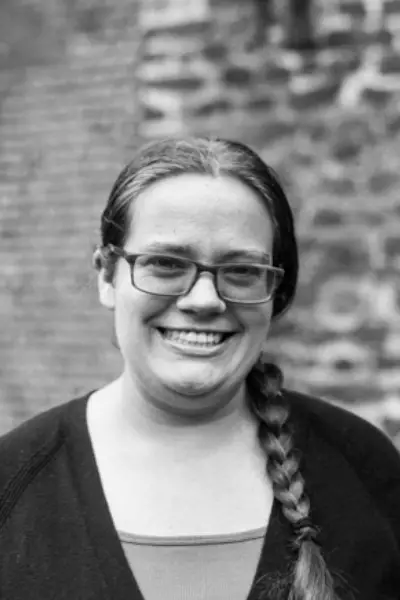On Thursday, I had to say goodbye to three of my closest friends. We had met two-and-a-half years ago during our shared semester abroad, where we found ourselves studying among ninety-five other students in a Dutch, fourteenth-century castle.
We didn’t know any of the people we had traveled with, so we awkwardly hooked onto each other in a desperate need for friendship. And, after spending three months together, trapped in tight living quarters and traveling all across Europe, we grew inseparable. I found that the comfort I felt around them was unlike anything I had felt before. I could be myself around these girls. I didn’t fear their judgment. And as an exceptionally socially-awkward person, that feeling of uncontested friendship was new to me.
The following two years in Boston, back at our main campus, we grew even closer. We discovered our love for heated UNO tournaments and late night dinners at Panera. We supported each other through personal struggles and planned extravagant adventures for when we were all mildly successful. We were going to share an apartment in New York City, travel to Iceland, start a magazine for young women and eventually discover the secret to immortality, so we could live our adventures over and over again.

But as graduation drew nearer, the comfortable curtain of optimism that college had provided was slowly drawn back, revealing the improbability of our plans. Though we had all talked about moving to New York together, none of us actually wanted to live in that city. One of my friends wanted to stay in her hometown of San Antonio, another moved back to DC to attend law school. I was going to be staying in Boston, while my third friend was still figuring out her plans.
And on that bittersweet Thursday, as we went our separate ways, we all said it wasn’t forever. We laughed and danced with tears in our eyes, praising each other for graduating, saying we’d see each other again, soon. Saying we’d find ways to uphold our plans. But their departure felt finite and I spent a lonely weekend thinking about how much this all sucked.
I had just spent the last two-and-a-half years learning what it meant to have flawless friends—the sorts of friends I always admired people for having in movies and novels—and now, I just had to accept that there was a distinct possibility we were going to live our lives apart from each other, only Facebook messages and video chats connecting us.
It didn’t seem right. Or fair. Why did I have to say goodbye to years of friendship just to pursue a career?
After spending four years surrounded by occupation-driven students at my liberal arts school, I knew that if I didn’t base my future plans around my desired job field, I’d be frowned upon, just as my fellow students unfairly judged those who lacked the wanderlust gene or wanted to be stay-at-home parents.
Practically all of my professors had suggested the same thing. They said if I wanted a job, particularly a job in journalism, I had to be willing to travel to where the jobs are, be it a hole-in-the-wall newspaper in some landlocked state, or north to Alaska where many journalists are too afraid (or too cold) to venture. But the places where those jobs are, are not necessarily places my friends can find jobs. And again, my mind cannot help but conjure up the image of a lonely future.
I had unconsciously decided a long time ago that I would choose close friends over any job—albeit the cheesiness and naivety of the sentiment—but now I was starting to feel guilty about that choice. Not only was I fearful of other people’s judgments, but I also kind of hated myself for wanting to follow my friends rather than my dream job, because where was the independence in that?
But as I took to Google scholar for academically-based research that would support my stance in this article, I found countless studies establishing friendship as the key factor for happiness.

There were studies proving quality mattered more for functioning friendships than quantity, that “having happy friends who live less than a mile away was an especially powerful predictor of happiness,” and that there was an increasingly great challenge in cultivating happiness “in a social world that seems to increasingly define self-worth and life satisfaction based on image, success, and popularity.”
I finally had the words and research I needed for when I would have to explain to my parents why I was taking a shitty job at an internet startup over a well-paid job at an established publication, if it meant being closer to my friends. Because—again, cliché aside—happiness is all anyone strives for, right?
I know I am inexperienced and that naivety arises from having all my life knowledge come from Netflix series and novels, but one of the things I’ve learned is that careers are possible wherever you settle. Pam and Jim found it at a paper company in Scranton. Lorelei Gilmore found it at the Dragonfly Inn. Leslie Knope found it at Pawnee’s city hall. Their jobs may not have been perfect, but they were happy. Mostly because they had incredible friends. But friendships are hard, particularly once you leave college, so why don’t they take priority? Maybe it’s time for people to recognize their greater importance.
I received a message from one of my friends a few days after she had left Boston. She told me she had also spent the weekend mourning the sudden loss of her proximity to her friends.
“Can we agree to be clingy?” she had asked. “Can we find a city or place we all want to live in and just apply to jobs there?”
It was a simple plan, but it seemed perfect to me.
“I didn’t work this hard at friendships in college,” she continued, “just to give them up when I graduated.”
“Me neither,” I said, smiling. “I agree. Let’s be clingy.”

















